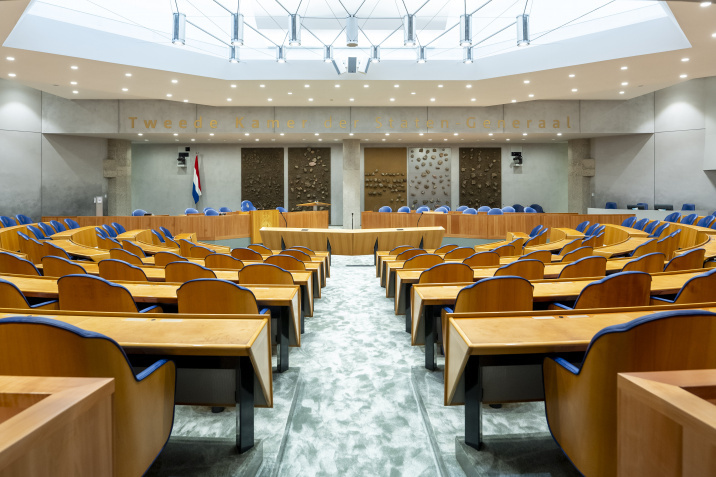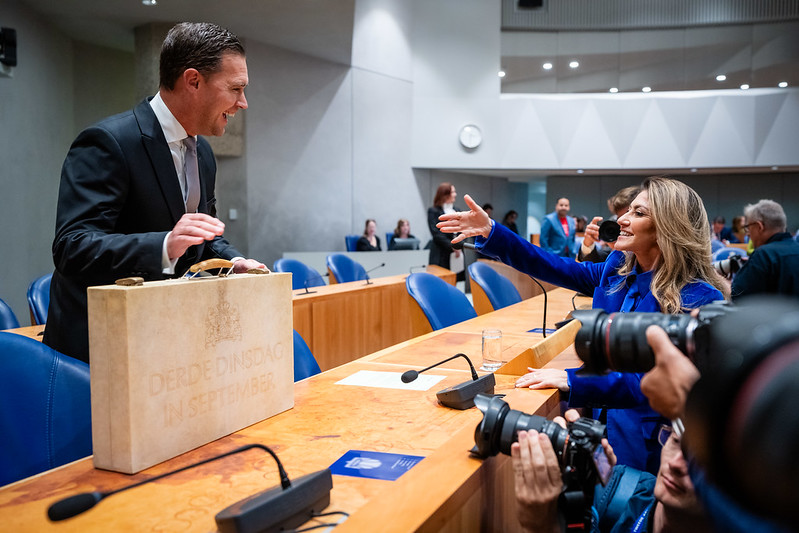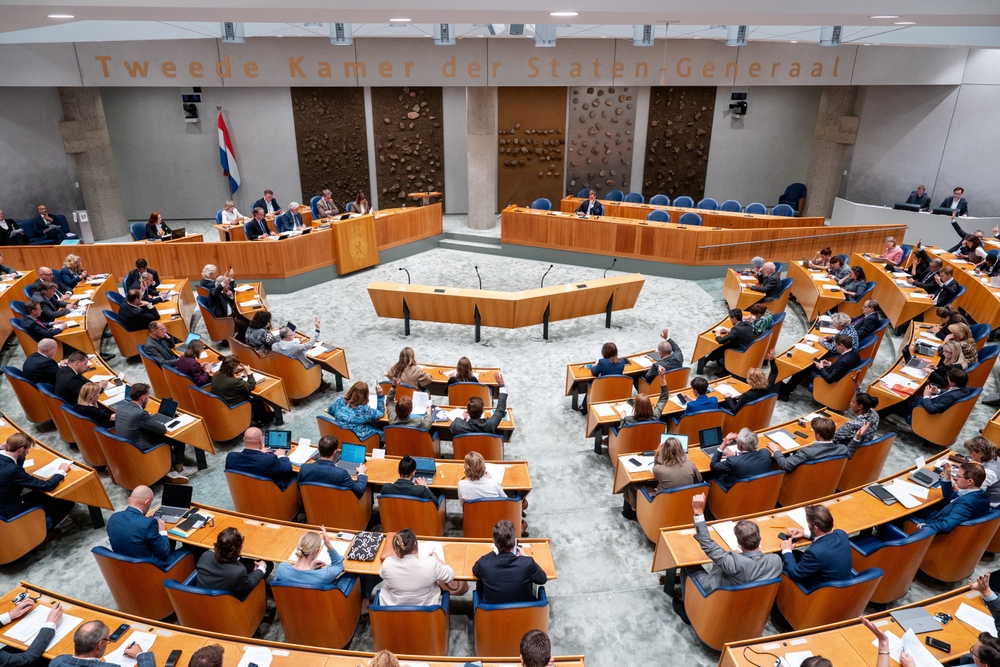Major cutbacks to education and research? With a general election fast approaching, a good proportion of the House of Representatives believe it’s time to call a halt. But a proposal to halt the cuts has been voted down.
‘We once again seem to be heading for a majority that favours scrapping the education cuts,’ D66 leader Rob Jetten told Prime Minister Dick Schoof on Thursday, during day two of the general budget debate.
Jetten was referring to the upcoming election on Wednesday 29 October. A new House of Representatives could well set a different course on education and research. With this prospect ahead, he argued that the current caretaker government should hold off on far-reaching measures until the House gets to debate the education budget.
Jetten went on to emphasise the impact already being felt. He cited examples of cancer research being scaled down and education programmes beyond the major cities that are at risk of disappearing. In his view, the cuts in education and innovation are squeezing the economic capacity of businesses in the Netherlands.
Irreversible steps
Prime Minister Dick Schoof was reluctant to make concessions. Not least because the scheduling of debates in the House of Representatives is out of his hands, so he could not say when the education budget would be up for discussion. In the end, Jetten joined forces with Joost Eerdmans (JA21) to table a motion on education funding, calling on the government not to take ‘irreversible steps’. In other words, the ministry should avoid forging ahead when its budget may still come under review.
Their motion met with support from a large number of parties: SP, GroenLinks-PvdA, PvdD, Denk, Volt, D66, NSC, ChristenUnie, JA21 and FvD. This widespread support did not add up to a majority, however, and the motion was narrowly defeated by coalition parties VVD and BBB with support from PVV, SGP and CDA.
Despite this defeat, the opposition parties are not giving up. GroenLinks-PvdA has already tabled an amendment to the education budget that calls for the cuts to be reversed. As things stand, the amendment doesn’t stand a chance but the House will not vote on it until after the election and by then it could be a different story.
Another motion tabled on Thursday night also touched on students and higher education. The motion proposed extending rent allowance to cover student housing, but failed to gain enough support. At present, students living in private sector accommodation are usually entitled to rent allowance.
Activism
In the debate, Schoof and ChristenUnie leader Mirjam Bikker also argued about the fierce climate of activism at the universities. Bikker made the point that ‘if a Jewish student no longer dares to attend lectures, if a minister can no longer give a speech, if a professor no longer dares to be on a party’s electoral list, then we are well on our way to unfreedom instead of the breeding ground for freedom that an academic institution is meant to be’.
The prime minister could only agree: ‘No one should feel unsafe in this country. That applies to people from a Jewish background, but it also applies to people from a Muslim background, or indeed any background.’
FvD proposed following the example of the Trump administration in the United States by branding Antifa (a loose-knit association of anti-fascist activists) a terrorist organisation. The party accused Antifa of disrupting gatherings, intimidating students and journalists, threatening politicians and resorting to violence.
Schoof advised against this course of action – ‘a matter for the courts’ – but the FvD proposal won sufficient backing from other parties to the right of the political spectrum: SGP, VVD, BBB, JA21 and PVV all voted in favour.

 Plenary room in the Lower House at the Bezuidenhoutseweg in The Hague. Photo Creative Commons
Plenary room in the Lower House at the Bezuidenhoutseweg in The Hague. Photo Creative Commons 

